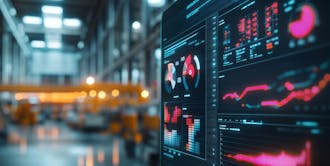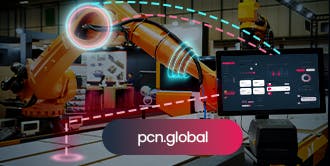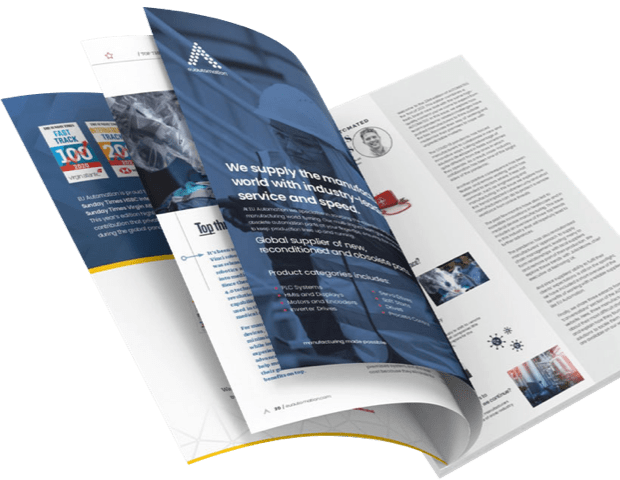What’s in store for industrial automation in 2025?
December 18, 2024
As we step into 2025, the manufacturing sector is poised for a year filled with growth, innovation, and new challenges. From sustainability initiatives to addressing product obsolescence, manufacturers and end-users alike must adapt to a rapidly evolving landscape. Here’s what 2025 has in store for the future of the manufacturing industry.
Supply chain resilience: Addressing new challenges
While the supply chain has largely stabilised since the disruptions of previous years, there are still new challenges to overcome. Manufacturers are focusing on key areas to ensure supply chain resilience in 2025:
- Geopolitical impacts: Trade tensions and regulatory shifts continue to influence global supply chains. Certain industries are adapting to changes in export controls and trade agreements. [1]
- Material shortages: Sourcing rare earth materials is still a challenge for the electronics and renewable energy sectors. As a result, factories are searching for new sources of raw materials and suppliers. [2]
Using digital tools for the supply chain is now vital. Reducing wait times and keeping operations running smoothly are two of the primary goals of real-time tracking systems and predictive analytics. [3]
Automation and generative AI: Transforming the factory floor in 2025
Generative AI is redefining how manufacturers approach design, production, and problem-solving:
- Product design: Manufacturers can use AI-driven tools to quickly prototype and test new designs. This approach can reduce development cycles by as much as 40%. [4]
- Predictive maintenance: AI algorithms now analyse real-time equipment data, reducing downtime and extending machine lifespans. [2]
- Operational efficiency: AI systems are optimising workflows, identifying bottlenecks, and streamlining production processes. [5]
These advancements give producers the ability to innovate. They also enable a quicker response to market demands, providing a competitive edge in a fast-paced industry.
Sustainability in manufacturing: A global priority for the future
In 2025, the concept of sustainability will continue to be at the forefront of production. This is driven by evolving regulations and customer expectations:
- Global regulations: The European Union’s Green Deal continues to promote carbon reduction initiatives. Meanwhile, the International Sustainability Standards Board (ISSB) in APAC and the U.S. Securities and Exchange Commission (SEC) ensure that other markets will enhance their sustainability standards to align with global goals. [6][7][8]
- Circular economy adoption: A significant portion of global manufacturers are likely to adopt circular practices in 2025. The fashion industry is expected to make significant strides in circularity through advancements in textile-to-textile recycling and the growing second-hand economy, fostering sustainability and reducing waste. [9][10]
Sustainability plays a crucial role in long-term business success. It involves a variety of topics, such as the incorporation of renewable energy sources and the design of eco-friendly products.
Product lifecycle management: Addressing obsolescence and end-of-life parts
A key challenge that manufacturers will face in the year 2025 is managing the lifecycle of automation components. There are a number of widely used product families that are nearing their end-of-life or reduced support. This requires manufacturers to proactively plan for replacements. Examples include:
- Siemens: The S7-300 and ET 200M I/O systems will no longer be available for purchase after October 1st 2025. These components will therefore only be available as spares. The ET 200SP and ET 200MP will take these parts place as replacements.
- ABB: The MS325/MO325 family entered the limited phase in January 2024 and will now become obsolete by July 2025. Users will need to make the shift to updated solutions.
- Omron: The G8N series DC relays, such as the G8N-1 DC12 and G8N-17LR DC12, are scheduled for discontinuation by the end of September 2025. The G8NB series relays will serve as their replacements.
- Honeywell: Key devices such as the CK3R and CK3X scanners will see the last renewal cycle in 2025. This situation urges facilities to explore newer models
It is a must that manufacturers who rely on these systems plan their migrations in advance to avoid disruptions. EU Automation focuses on sourcing obsolete components. This approach ensures continuity and minimises downtime for your plant in 2025.
Service enhancements: Supporting manufacturers globally
EU Automation continues to evolve its offerings and services to be able to meet the manufacturing demands of 2025:
- Global trade support: Our extensive logistics network ensures timely delivery of critical components to minimise downtime and maintain productivity.
- Expert guidance: Our team of specialists helps manufacturers find suitable replacements for obsolete components and provides advice on obsolescence strategies and critical spares availability.
- Resource library: EU Automation’s Knowledge Hub provides a vast array of articles and guides to assist manufacturers in navigating trends and challenges.
By providing tailored support and reliable solutions, EU Automation empowers manufacturers to thrive in an ever-changing industry.
The future of manufacturing in 2025
In the year 2025, manufacturers all over the world will face a wide variety of challenges as well as opportunities. Embracing generative AI is a must for companies today. Prioritising sustainability and addressing lifecycle management proactively will help them position themselves for long-term success. EU Automation remains a trusted partner in navigating these changes, offering resources and expertise to support manufacturers at every step.
For more insights and solutions, visit EU Automation's knowledge hub.
Sources:
[1] https://www.wsj.com/world/china/china-us-trump-trade-war-retaliation-70523b7c?
[3] https://www.supplychaintoday.com/top-supply-chain-challenges-and-priorities/
[4] https://www.makerverse.com/resources/the-biggest-supply-chain-trends-for-2025/
[5] https://www.numericalinsights.com/blog/the-top-10-supply-chain-trends-for-2025
[6] https://www.greenprojecttech.com/newsroom/the-2025-guide-to-european-sustainability-regulations
[7] https://www.sec.gov/newsroom/press-releases/2024-31
[8] https://www.anthesisgroup.com/insights/issb-global-momentum-for-sustainability-reporting
[9] https://getgoodlab.com/resources/sustainability-manufacturing/











